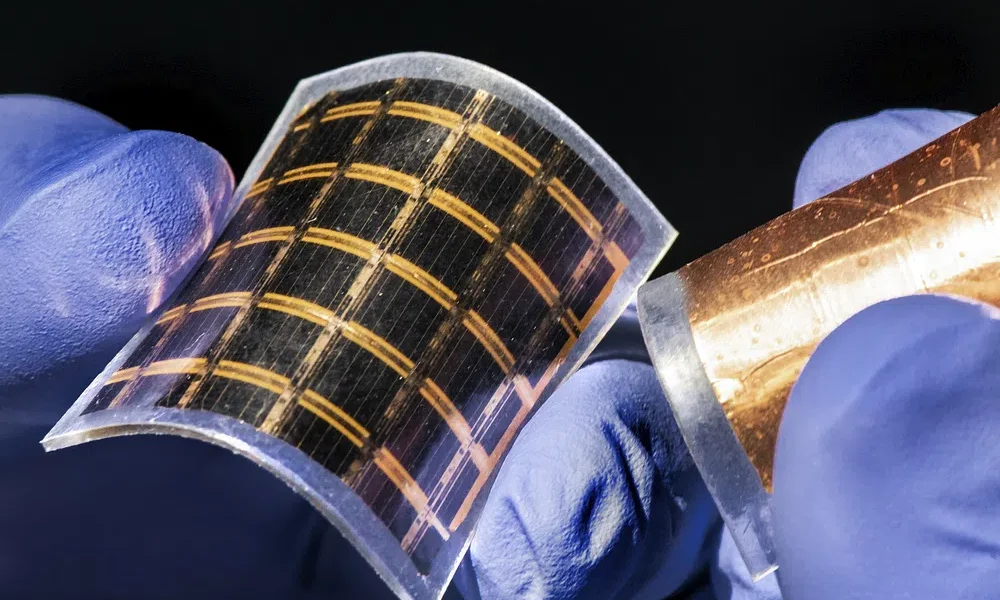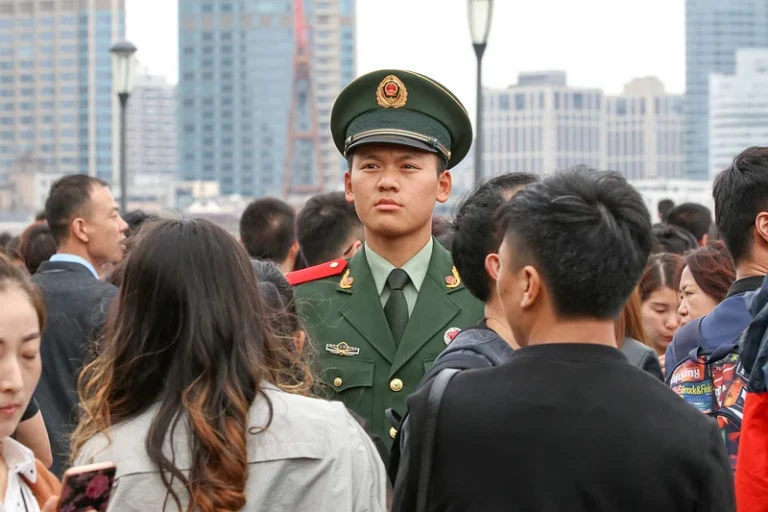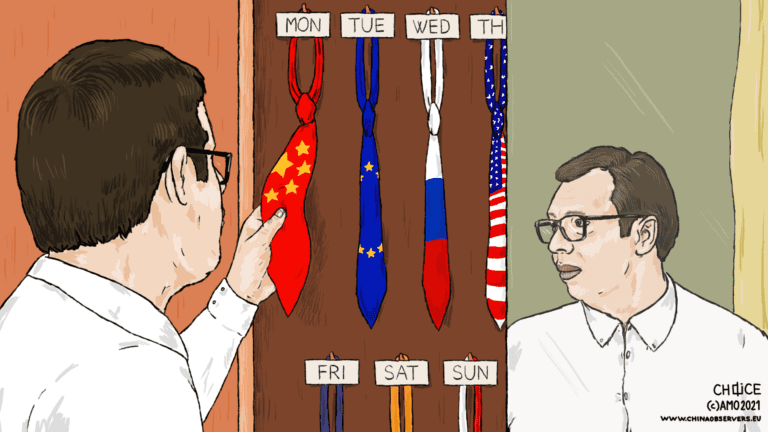
The article is published as part of a joint issue “Green Synergies: Sustainability, Security, and Taiwan-Europe Collaboration” between CHOICE and the University of Nottingham’s Taiwan Insight.
Facing China’s dominance in the solar panel market, the EU is exploring perovskite solar cells (PSCs) as a strategically important alternative to diversify its supply chain and reduce reliance on China-controlled materials and manufacturing. Amid growing geopolitical tensions and urgent climate goals, PSCs stand at the crossroads of energy and strategy, where Taiwan brings deep expertise, while the EU brings strong policy momentum.
With the growing global demand for solar energy, China has steadily expanded its market share as the dominant player in the international market. According to the research on global solar photovoltaic (PV) supply chains conducted by the International Energy Agency (IEA), China has invested over $50 billion in new PV manufacturing capacity since 2011 – an amount ten times greater than that of Europe – and it now controls more than 80 percent of the global market share across all manufacturing stages of solar panels.
In response to China’s monopoly in the solar panel market, the European Union has launched investigations into Chinese solar panel manufacturers suspected of receiving market-distorting subsidies, aiming to ensure fair competition. Concerns about China’s dominance in the solar panel market were further legitimized by past events, such as CEFC China Energy’s investment in the Czech Republic, which triggered widespread alarms over financial opacity and political influence. To address these concerns, the EU has taken concrete steps to revitalize its critical industries. For instance, Belgian chemicals group Solvay launched an initiative to restart rare earth metal production, aimed at strengthening regional supply chains. At the same time, the EU is actively exploring technological alternatives.
In short, the EU’s growing concerns over its dependence on conventional solar panels highlight the importance of diversifying the clean energy supply chain, with perovskite solar cells (PSC) offering a compelling alternative due to their reduced reliance on China-dominated critical minerals, flexibility of customizable applications in buildings and agriculture, and the potential for manufacturers not based in China. Based on a prior report drafted by the Research Institute for Democracy, Society and Emerging Technology (DSET), this article explores the strategic advantages of PSCs and Taiwan’s potential role in building a resilient PSC supply chain for Europe.
Why PSC Matters: Lessons from the Solar Panel Dependence on China
While China’s dominance in today’s silicon-based solar panel market appears firmly entrenched, next-generation solar technologies offer Europe an opportunity to reshape its strategic position and enhance supply chain resilience. PSCs are made from non-silicon materials, allowing the EU to reduce its reliance on silicon-based supply chains and technological inputs from China.Their unique structure thus not only allows countries to mitigate their reliance on China-controlled silicon processing but also to avoid vulnerabilities linked to the increasing cost and scarcity of critical materials such as silver.
Taiwan Perovskite Science and Technology (TPSC), in collaboration with the Industrial Technology Research Institute’s (ITRI) Measurement Center, achieved a photovoltaic conversion efficiency of 33.5 percent by incorporating perovskite materials into tandem cells. This achievement represents a significant milestone in the advancement and validation of third-generation solar panel technologies.
The ability of PSCs to flexibly adjust their conversion rates – combined with their thin and bendable structure – makes them highly suitable for a wide range of innovative applications. The lightweight characteristics of PSCs make them particularly suited for applications such as building-integrated photovoltaics (BIPV) and portable solar devices. Moreover, the wide range of possible applications suggests that the next-generation solar market may shift away from mass production toward more specialized, local solutions. For example, PSCs could be tailored to combine with insulated glass windows for smart buildings or modular photovoltaic systems for greenhouse agriculture. This diversification reduces reliance on China’s large-scale supply chains and opens opportunities for decentralized manufacturing.
Clearly, PSCs not only represent a significant technological breakthrough but offer flexible application potential that can address diverse energy needs. Compared to traditional silicon-based cells, PSCs hold the promise of reducing reliance on China-centric supply chains. For the EU, which is seeking to accelerate the energy transition and enhance supply chain resilience, PSC technology represents a strategically significant and promising alternative.
How Taiwan Can Help: Building a Resilient Solar Module Supply Chain
Taiwan’s PSC development builds on its existing panel industry infrastructure, where many production processes can be directly applied to perovskite cells. Techniques such as wet coating, layer assembly, and module integration are already in place. While some large-scale production still depends on facilities in China, Taiwan maintains strong capabilities in regulation, flexible manufacturing, and research. By focusing on quality and practical applications, Taiwanese firms are finding ways to reduce reliance on China and strengthen their roles in the future solar technology market.
In 2024, the EU officially passed the Net-Zero Industry Act (NZIA), a landmark regulation aimed at boosting domestic clean technology production. This Act designates solar photovoltaic technology as one of the strategic net-zero technologies and sets an ambitious target of meeting at least 40 percent of the EU’s annual solar deployment needs with domestically manufactured products by 2030. It streamlines permitting procedures, introduces sustainability and resilience criteria into procurement processes, and provides a regulatory framework to boost investments in the clean energy industry. In line with this goal, European countries have launched a variety of PSC-focused research and development (R&D) projects to accelerate next-generation solar innovation. One example is the PEARL project, funded by Horizon Europe, which aims to develop flexible PSCs incorporating carbon electrodes to lower material costs and achieve conversion efficiencies exceeding 25 percent. Meanwhile, the PEPPERONI project is working to scale tandem perovskite-silicon modules for industrial production.
Against this backdrop, experienced partners like Taiwan could serve as key contributors in bridging the gap between the EU’s solar innovation and its manufacturing objectives. With a vertically integrated supply chain, advanced R&D in PSCs, and decades of collaboration with European firms, Taiwanese manufacturers are well-positioned to support local production and create jobs in Europe. According to interviewees cited in the DSET report, proposed strategies include exporting entire manufacturing facilities to Central and Eastern Europe and adopting patent licensing models to enable joint production without the need to establish local factories.
TPSC Chairman Chen Lai-Chu, who previously worked at AUO Corporation, highlighted the turnkey project in the Czech Republic as a promising opportunity for Taiwan-EU cooperation in developing PSC panels. In addition to facilitating joint production, this project also contributes to carbon reduction goals, aligns with the EU’s Carbon Border Adjustment Mechanism (CBAM), and helps cultivate a skilled labor force within the region. This cooperation thus represents a mutually beneficial pathway toward sustainable energy development and industrial revitalization.
In terms of R&D advancement, the research team at Academia Sinica has recently developed a next-generation solar cell with power conversion efficiency surpassing 31 percent, which represents performance improvement of over 30 percent compared to the most advanced commercial technologies. This achievement demonstrates Taiwan’s strength in scientific innovation and advanced materials research, reinforcing its role in strengthening the resilience and diversity of the global solar photovoltaic supply chain.
PSC Advancement as Geopolitical Necessity
Both Taiwan and the EU have demonstrated strong ambitions in advancing the development and deployment of PSCs. Amid growing concerns in European countries over their excessive reliance on China for critical materials and clean technologies, the need for diversified and resilient partnerships is more urgent than ever. Establishing cooperation with trusted and credible partners is crucial, as developing PSC technology not only reduces European countries’ dependence on China but enables to achieve their clean technology goals.
There is no doubt that the role of geopolitical strategy in shaping clean energy partnerships has become increasingly pronounced. As the DSET report highlights, building resilient supply chains for emerging technologies like PSCs is not merely a climate imperative, but also a geopolitical necessity. Under this context, deepening cooperation between the EU and Taiwan offers a pragmatic solution. Taiwan’s strengths in PSC innovation and flexible manufacturing aligns well with the EU’s policy objectives. By aligning green technology development with geopolitical risk mitigation, EU-Taiwan collaboration can help secure strategic autonomy, diversify clean tech partnerships, and lay the groundwork for a sustainable energy future.
Bio: Yu-Ping (Yolanda) Yang is a master’s student in International Relations at the Department of Political Science, National Taiwan University. She is also a research assistant with the Climate Resilience and Sustainability Research Program at the Research Institute for Democracy, Society and Emerging Technology (DSET), a Taiwan-based think tank. Her research focuses on international disputes and geopolitical analysis, with particular interests in energy security and environmental policy.
Written by
Yu-Ping Yang
Yu-Ping (Yolanda) Yang is a master's student in International Relations at the Department of Political Science, National Taiwan University. She is also a research assistant with the Climate Resilience and Sustainability Research Program at the Research Institute for Democracy, Society and Emerging Technology (DSET), a Taiwan-based think tank. Her research focuses on international disputes and geopolitical analysis, with particular interests in energy security and environmental policy.


